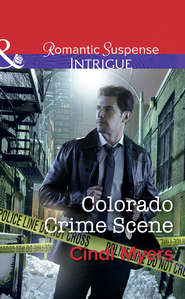По всем вопросам обращайтесь на: info@litportal.ru
(©) 2003-2025.
✖
Rocky Mountain Revenge
Автор
Год написания книги
2018
Настройки чтения
Размер шрифта
Высота строк
Поля
She stooped and picked up her mail from the floor, where it had fallen when the carrier had shoved it through the slot. Utility bills, the local paper, junk—the usual. Nothing was amiss about the mail or the house, yet she couldn’t shake her uneasiness. She eased out of the boots and padded into the kitchen in stocking feet and put away the groceries. She wished she had a drink. She had no liquor in the house—she hadn’t had a drink since she’d left New York. It seemed safer that way, to always be alert. But today she’d welcome the dulling of her senses, the softening of the sharp edges of feeling.
She put water on for tea instead, then went into the bedroom to change into jeans and a comfy sweater. Maybe she’d start a fire in the small woodstove in the living room, and try to lose herself in a novel.
The bedroom held the only piece of furniture in the house she really liked—an antique cherry sleigh bed, the wood burnished by years of use to a soft patina. She trailed one hand across the satin finish on her way to the closet. She stopped beside the only other piece of furniture in the room, a sagging armchair, and slipped out of the corduroy skirt and cotton turtleneck. Sensible clothes for racing after six-year-olds. Elizabeth would have laughed to see her in them.
She opened the closet and reached for a pair of jeans. She scarcely had time to register the presence of another person in the room when strong arms wrapped around her in a grip like iron. A hand clamped over her mouth, stifling her scream. Panic swept over her, blinding her. She fought with everything she had against this unknown assailant, but he held her fast.
“Shhh, shhh. It’s all right. I won’t hurt you.” The man’s voice was soft in her ear, its gentleness at odds with the strength that bound her. “Look at me.”
He loosened his hold enough that she could turn her head to look at him. She screamed again as recognition shook her and choked on the sound as she stared into the eyes of a dead man.
Jake Westmoreland watched the woman in his arms closely, trying to judge if it was safe to uncover her mouth. He wasn’t ready to release his hold on her yet. Not because he feared she’d strike out at him, but because he’d waited so many months to hold her again.
She was thinner than he remembered, fragile as a bird in his hands, where he’d never thought of her as fragile before. Her hair was darker too, cut differently, and the bright streaks of color were gone. He’d seen her picture, so he should have been prepared for that. But nothing could have really prepared him for meeting her again, not after the trauma of their last parting. For months, he hadn’t even been sure she was still alive.
“I thought you were dead,” she said when he did remove his hand from her mouth. Tears brimmed in her eyes, glittering on her lashes.
“I was sure Giardino’s goons would go after you next.”
“Your friends got to me first. But they never told me you were still alive. How? The last time I saw you...” She shook her head. “So much blood...”
They told him later he had died, there on the floor of the suite at the Waldorf Astoria. But the trauma team had shocked his heart back to life and poured liters of blood into him to keep his organs from shutting down. He’d spent weeks in the hospital and months after that in rehab—months lying in bed with nothing to do but think about her.
He brushed her hair back from her temples, as if to reassure himself she was real, and not a dream. “Elizabeth, I—”
The pain in her eyes pierced him. “It’s Anne. Elizabeth doesn’t exist anymore. She died that day at the hotel.”
He’d known this, too, but in the moment his emotions had gotten the better of him. He stepped back, releasing her at last. “Why Anne?”
“It was my middle name.” Her bottom lip curved slightly in the beginnings of the teasing smile he’d come to know so well. The old smile he’d missed so much. “You didn’t know?”
“No.” There was so much he hadn’t known about her. “Can we sit down and talk?” He nodded toward the bed, the only place where two people could sit in the room.
A piercing whistle rent the air. He had his gun out of his shoulder holster before he even had time to think.
She stared at the weapon with an expression of disgust. “Are you going to shoot my tea kettle?”
He put the gun away.
“Let’s go into the living room,” she said. She pulled a robe from a hook on the closet door and wrapped it around herself, but not before he took in the full breasts rounded at the top of her black lace bra, the narrow waist fanning out to slim hips—and the scar on her lower back.
“Your tattoo’s gone,” he said. She’d had the words Nil opus captivis at the base of her spine, in delicate script. Take no prisoners. The motto of a woman who’d been determined to wring everything she could from life.
“I had it removed. They told me I shouldn’t leave any identifying marks.”
She led the way into the living room, going first to the kitchen to turn off the burner beneath the kettle, then to the front window to pull the blinds closed. He sat on the sofa, expecting she would sit beside him, but she retreated to the chair, her arms wrapped protectively around her middle.
“How did you find me?” she asked.
“I still have friends at the Bureau. People who owe me favors.”
“No one is supposed to know where I am. They promised—” She broke off, her lips pressed together in a thin line. He could read the rest of her thoughts in her eyes. This wasn’t the first time the government had broken promises to her. What about all the promises he’d made?
“I never meant to lie to you,” he said. “I was trying to protect you.”
“You didn’t do a very good job of that, did you?”
He clenched his hands into fists. “No. Tell me what happened after I left. I heard you turned state’s evidence.”
“If you’re still with the FBI you should know all this.”
“I’m not with the Bureau anymore.”
She raised her brows. “Oh? Why not?”
“Officially, I was retired on disability.”
“And unofficially?”
“Unofficially, they thought I was too much of a risk.”
“Because of what happened with my father?”
“That, and...other things.” He’d committed the cardinal sin of developing an intimate relationship with a person he was supposed to be investigating. Not that Elizabeth Giardino had been the target of his investigations, but she was close enough to her father to raise questions about Jake’s integrity and his ability to perform his job. “Tell me what happened after I was shot,” he said.
“My father’s goons did try to drag me away, but they didn’t know you had the place surrounded. When the cops broke in, everyone was too focused on keeping my father safe to worry about me. Someone hustled me into a car and took me downtown.”
He tried to imagine the scene. She’d been covered in his blood, wild with fear. They’d have put her in an interrogation room and turned up the pressure, grilling her for hours, trying to break her. At one time he would have said she wasn’t a woman who could be broken, but now he wasn’t so sure. “They wanted you to provide evidence against your father.”
“They didn’t have to persuade me. After I saw what he did to you...I wanted to make him pay.”
Was it because of him, really? Or because her father had destroyed her trust? In one blast of gunfire she’d gone from pampered daddy’s girl to enemy number one. It must have made her question everything.
“I laid all the family’s dirty secrets out in public and he swore he’d kill me,” she continued. “He stood there in court and cursed me and said I was dead to him already.” She swallowed, and he sensed the effort it took for her to rein in her emotions.
“After that it was too dangerous for you to remain in New York,” he said.
She nodded. “It was too dangerous for me to be me. Within a month my father had escaped prison and disappeared, but we all know he’s still out there somewhere, and he hasn’t forgotten anything. The feds gave me a new identity. Elizabeth Giardino died in a tragic boating accident in the Caribbean and Anne Gardener came to Rogers, Colorado, to teach school.”
“I never imagined you as a schoolteacher.”
“I had a degree in English from Barnard. The Marshals Service pulled a few strings to get me my teaching certificate. They found this job for me, and this house.” She looked around the room. The plain, old-fashioned furniture was as unlike her hip Manhattan apartment as he could have imagined. “I suppose they thought this place was as anonymous as a town could be.” Her gaze shifted back to him. “Yet you found me.”
“I had inside information.”
“Other people can pay for information.”
Other people being her father and his goons. “I knew about this place. That it was on a list of possible hideouts. I persuaded a former colleague to let me take a look at the accounting records for the period after you disappeared and I found payment to a Colorado bank. I was able to trace that to this house.”











